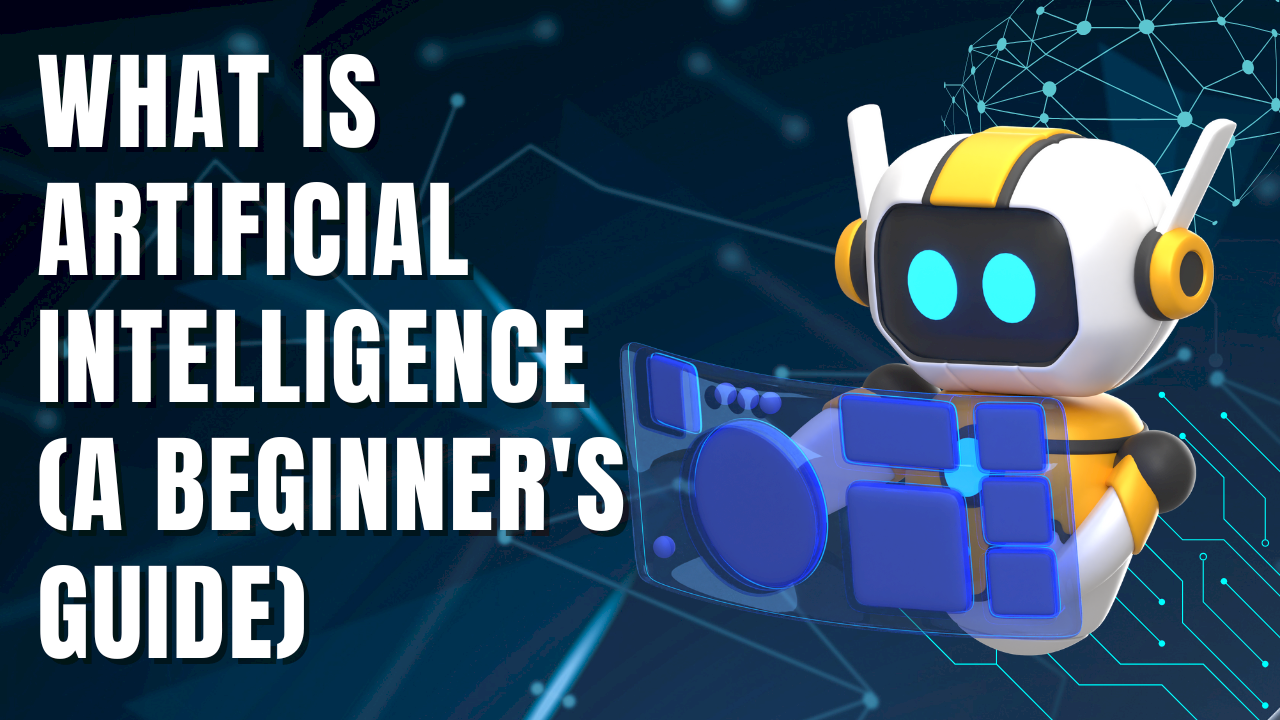
Artificial Intelligence (AI) is one of the most fascinating and transformative technologies of our time. From voice assistants like Siri and Alexa to self driving cars and personalized Netflix recommendations, AI is everywhere. But despite its popularity, many people still wonder: What exactly is AI, and how does it work?
If you’re new to the topic, the jargon and hype around AI can be intimidating. That’s why we’ve created this beginner friendly guide. By the end, you’ll understand the basics of artificial intelligence, its history, types, real world applications, and why it’s shaping the future of nearly every industry.
What is Artificial Intelligence?
At its core, Artificial Intelligence (AI) refers to the ability of machines to mimic human intelligence. It involves creating systems that can perform tasks requiring reasoning, learning, problem solving, perception, and even decision making.
In simple terms: AI allows computers to think, learn, and act like humans sometimes even faster and more accurately.
✅ Example: When you ask Google Maps for directions, AI calculates the fastest route by analyzing real-time traffic data.
A Brief History of AI
The idea of machines that can “think” isn’t new.
1950s: British mathematician Alan Turing introduced the concept of a “universal machine” and posed the famous Turing Test asking whether machines can exhibit behavior indistinguishable from humans.
1956: The term Artificial Intelligence was officially coined at the Dartmouth Conference.
1970s – 1980s: AI research faced challenges due to limited computing power this period is often called the “AI Winter.”
2000s – Present: Advances in big data, cloud computing, and machine learning reignited interest. Today, AI powers industries from healthcare to finance.
How Does Artificial Intelligence Work?
AI works by combining data, algorithms, and computing power.
1. Data – AI systems need massive amounts of data to learn patterns.
Example: A language model learns by analyzing billions of sentences.
2. Algorithms – Mathematical rules that process data and identify relationships.
3. Machine Learning – A subset of AI where systems “train” on data to improve performance over time.
4. Neural Networks & Deep Learning – Advanced models inspired by the human brain, capable of handling complex tasks like image recognition and natural language processing.
Types of Artificial Intelligence
AI can be classified into different categories:
1. Narrow AI (Weak AI)
Designed for a specific task.
Example: Netflix recommendations, spam email filters.
It doesn’t possess general intelligence beyond its function.
2. General AI (Strong AI)
A theoretical form of AI that can perform any intellectual task a human can.
It would have reasoning, problem solving, and consciousness.
Still a concept, scientists are working toward it, but we’re not there yet.
3. Superintelligent AI
A future vision where AI surpasses human intelligence in all aspects.
Often discussed in science fiction and ethical debates.
Key AI Technologies and Concepts
- Machine Learning (ML): Teaching computers to learn from data.
- Deep Learning: Using layered neural networks for tasks like voice recognition.
- Natural Language Processing (NLP): Helps machines understand and respond to human language (e.g., chatbots).
- Computer Vision: Enables machines to “see” and interpret images and videos.
- Robotics: AI driven machines that interact with the physical world.
Real World Applications of AI
AI isn’t just theory, it’s embedded in our daily lives:
- Healthcare: AI assists in disease diagnosis, drug discovery, and personalized treatment plans.
- Finance: Fraud detection, credit scoring, and algorithmic trading.
- E-commerce: Product recommendations, chatbots, and customer service automation.
- Transportation: Self driving cars, traffic management, and logistics optimization.
- Entertainment: Personalized playlists, movie recommendations, and video game AI.
- Education: Adaptive learning platforms, AI tutors, and plagiarism detection.
- Marketing: Predictive analytics, targeted advertising, and customer behavior insights.
Benefits of Artificial Intelligence
- Efficiency: Automates repetitive tasks.
- Accuracy: Reduces human error in fields like medicine and finance.
- Scalability: Can handle massive amounts of data quickly.
- 24/7 Availability: Unlike humans, AI systems don’t need breaks.
Challenges and Limitations of AI
Despite its potential, AI comes with challenges:
- Bias: AI can inherit human biases from data.
- Privacy concerns: AI systems often rely on personal data.
- Job displacement: Automation can replace certain human roles.
- Cost: Developing AI solutions can be expensive.
The Future of AI
Experts predict that AI will continue to grow in areas like:
- Healthcare AI assistants that support doctors.
- AI powered education platforms offering personalized learning.
- Sustainable AI for climate change solutions.
- General AI research pushing boundaries of machine intelligence.
But with this growth comes responsibility. Governments, businesses, and developers must ensure AI is used ethically and responsibly.
Conclusion
Artificial Intelligence may sound complex, but at its heart, it’s about teaching machines to “think” and perform tasks intelligently. From recommendation systems to medical breakthroughs, AI is already shaping our present and will define our future.
For beginners, understanding AI isn’t about mastering algorithms but about recognizing how it impacts your daily life and the opportunities it presents.
Whether you’re a student, professional, or entrepreneur, now is the perfect time to explore AI because it’s not just a tech trend, it’s the foundation of tomorrow’s world.
ruth
This is wonderful
mandy
I will always apply AI in my daily life and routine..
anniedynamite
This is super interesting
henrietta
Nice, makes life Easy
leesha
Ai is power great job thanks
angel23
Life without Ai is difficult